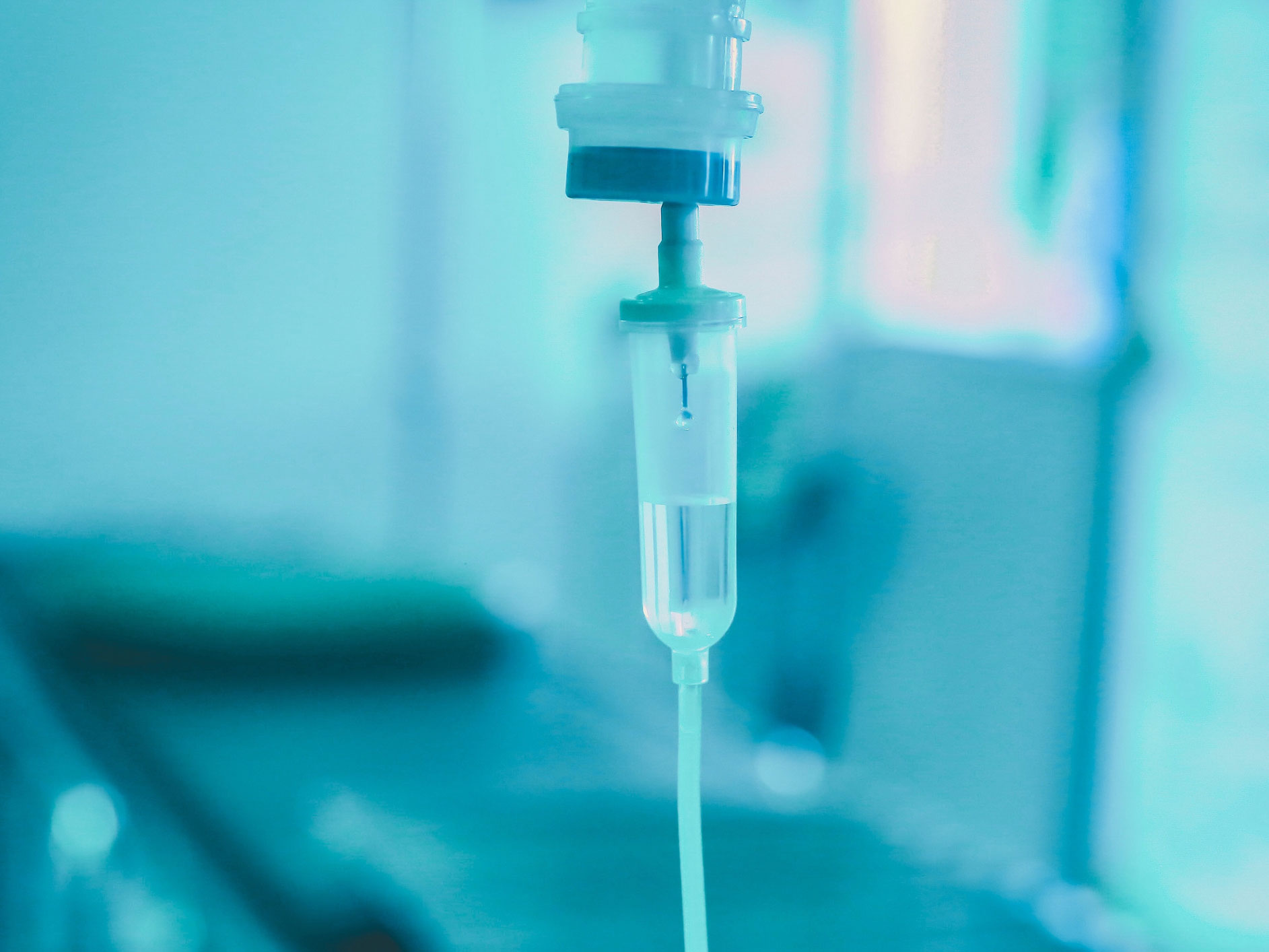Get Easy Health Digest™ in your inbox and don’t miss a thing when you subscribe today. Plus, get the free bonus report, Mother Nature’s Tips, Tricks and Remedies for Cholesterol, Blood Pressure & Blood Sugar as my way of saying welcome to the community!
Why hospitals are using mega-doses of vitamin C to help COVID-19 patients

We’ve reached a point where the COVID-19 epidemic has become very serious in the United States. The U.S. currently has the most confirmed cases out of any country in the world. And New York has been particularly hard hit.
New York City hospitals are being flooded with very sick people, and they’re having a hard time keeping up. Unfortunately, that means more people are dying.
Of course, New York medical staff is doing everything they can to keep people alive. And that includes one tactic that may surprise a lot of people — they’re giving mega-doses of vitamin C to people who are seriously ill with COVID-19.
You’ve probably heard in the past that vitamin C can support a healthy immune system. It’s why so many people take vitamin C supplements when they feel like they’re coming down with a cold or flu.
But there’s still a lot of conjecture about whether vitamin C works for things like colds and flu, let alone something as serious as COVID-19. So, what’s prompting NYC doctors to use it during this major crisis?
Promising reports from China, that’s what…
Vitamin C helps with coronavirus-related sepsis
Scientists at Zhongnan Hospital in Wuhan, China have started a clinical trial to see if vitamin C can improve outcomes for people with COVID-19. They believe that when the trial is done in September, they may be able to prove that vitamin C reduces the lung inflammation caused by the disease.
There are at least two other clinical trials on vitamin C and COVID-19 underway in China too. And the Shanghai Medical Association released official guidelines in early March in which experts endorsed high dose intravenous vitamin C to treat COVID-19.
Promising reports from these efforts have inspired doctors at Northwell Health hospitals in New York to incorporate vitamin C into the treatment regimen for some patients right away.
In fact, Dr. Andrew G. Weber, a pulmonologist and critical-care specialist affiliated with two Northwell Health facilities on Long Island, is giving COVID-19 ICU patients under his care 1,500 milligrams of intravenous vitamin C immediately upon being admitted. These patients then continue to receive this same dosage three to four times per day. And he’s not the only doctor in the Northwell Health hospital system using vitamin C for COVID-19 patients.
Northwell Health has 23 hospitals and a spokesperson for the hospital system said that vitamin C was being “widely used” (although, it’s not used for every COVID-19 patient). In addition to vitamin C, doctors are using the anti-malaria drug hydroxychloroquine, the antibiotic azithromycin, and a variety of biologic drugs (drugs created using molecules from living microorganisms, plants or animal cells) and blood thinners. But at this point, all the treatments doctors are using are somewhat experimental since we don’t have solid evidence for what helps with this virus yet.
In addition to the fact that there are promising reports coming from China, Dr. Weber says he’s using vitamin C because it may be able to help patients get through sepsis, an inflammatory response that happens when your body overreacts to an infection. Sepsis is what’s killing many COVID-19 patients.
According to Weber, when COVID-19 patients develop sepsis, their vitamin C levels plummet. And he believes maintaining high vitamin C levels may be able to help them.
Previous studies on sepsis and vitamin C show that Weber may be right. One 2019 study found that intravenous vitamin C reduced the risk of death in sepsis patients by 16 percent within 28 days. It also helped people get out of the Intensive Care Unit three days earlier and go home from the hospital a week earlier.
Vitamin C could help with COVID-19… but it’s not a cure
Now, I want to make something very clear — vitamin C is not a cure for COVID-19. There’s no indication that taking it preventatively will guarantee that you won’t contract the virus either.
All that said, vitamin C is one piece of a larger puzzle that supports a healthy immune system. It’s in a lot of fresh fruits and vegetables, including oranges, red bell peppers, hot peppers, pineapples, and strawberries.
However, taking vitamin C in high doses is unlikely to put your health in any serious danger (Linus Pauling took 18,000 mg of vitamin C per day and lived to be 93), but it can cause diarrhea, nausea and (in rare cases) kidney stones.
According to the Harvard T.H. Chan School of Public Health, the Tolerable Upper Intake Level (the maximum daily intake unlikely to cause harmful effects on health) for vitamin C is 2000 mg daily.
But vitamin C isn’t easily absorbed in the body. Studies have shown that the absorption of vitamin C decreases to less than 50 percent when taking amounts greater than 1000 mg.
Absorption does not differ either, whether your vitamin C comes from food or supplements. Of course, when given intravenously, though, higher amounts of vitamin C can directly enter the bloodstream. That’s why vitamin C mega-dosing is best left to the professionals.
Sources:
- New York hospitals treating coronavirus patients with vitamin C — New York Post
- Hospitals turn to high-dose vitamin C to fight coronavirus — Nutraingredients
- New York Hospitals are Using Vitamin C to Treat Some Coronavirus Patients — Newsweek
- New study links vitamin C therapy to better survival rates after sepsis — MedicalXpress
- Top 10 Biologic Drugs in the United States — Verywell Health












